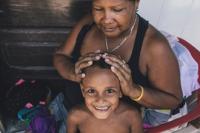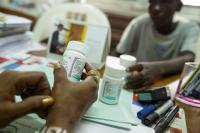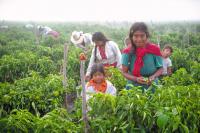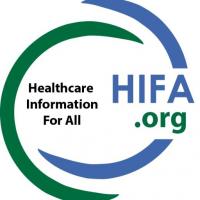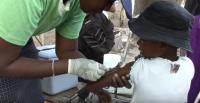You are here
News
-
10/18/2016 - New data published by World Health Organization in its 2016 "Global Tuberculosis Report" show that countries need to move much faster to prevent, detect, and treat the disease if they are to meet global targets.
-
10/18/2016 - Partnership will support technical cooperation addressing health priorities including tuberculosis, malaria, neglected infectious diseases, maternal and neonatal health, and strengthening of health systems over the next five years.
-
10/06/2016 - The new publication Infectious Neglected Diseases: Success Stories and Innovation to Reach the Neediest presents best practices in the countries of the Americas aimed at controlling and eliminating 11 diseases that affect primarily people living in extreme poverty, indigenous groups, rural communities, and marginal urban areas of major cities.
-
10/04/2016 - UNAIDS welcomes the United States’ announcement of a US$ 100 million Key Populations Investment Fund to expand access to HIV services. This fund created by the US President’s Emergency Plan for AIDS Relief (PEPFAR) will help close the gap between people who have access and people who are being left behind.
-
10/03/2016 - The new framework on Access and Rational Use of Strategic and High-cost Medicines and Other Health Technologies will help countries identify the best policies and strategies for increasing access to these products without excessive costs to their health budgets.
-
10/03/2016 - The countries of the Americas met almost all the health targets of the Millennium Development Goals (MDGs), according to a report presented to the region’s health ministers during the 55th Directing Council of the Pan American Health Organization (PAHO).
-
10/03/2016 - Young people are taking the lead against Zika in the slums and favelas of Brazil, where poor sanitation has led to a proliferation of mosquito-borne illnesses, including dengue, chikungunya and Zika virus.
-
09/28/2016 - The Healthcare Information for ALL (HIFA) introduced a new thematic discussion on Monday 19th September. Sponsored by THET, a UK-based HIFA Supporting Organization, the discussion will continue through to 21 October 2016 and the volunteers can join the discussion in HIFA's network.
-
09/28/2016 - The Region of the Americas is the first in the world to have eliminated measles, a viral disease that can cause severe health problems, including pneumonia, blindness, brain swelling and even death. This achievement culminates a 22-year effort involving mass vaccination against measles, mumps and rubella throughout the Americas.
-
09/19/2016 - The director of UNASUR’s Health Institute (ISAGS), Carina Vance, and the executive secretary of the Andean Health Organization (ORAS-CONHU), Nila Heredia, signed the Framework Convention for Interinstitutional Collaboration in the city of Cartagena on September 7, 2016. Both authorities attended the XV Ibero-American Meeting of Ministers of Health and the LAC Conference 'Reducing Inequalities in Sexual and Reproductive Health' in Colombia. Representatives from the Ministries of Health of Argentina, Bolivia, Colombia, Chile, Ecuador, Paraguay and Peru also participated in the meeting.


